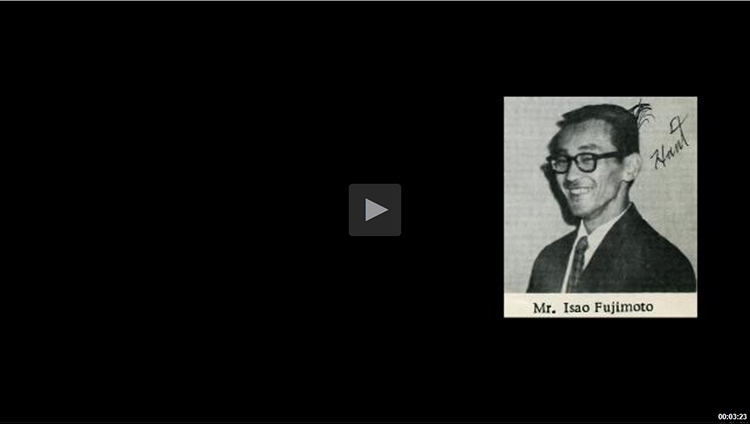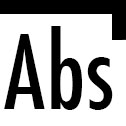
Abstract
Many generations of people have been moved and motivated by scholar-activist Isao Fujimoto, in his role as a leader for community-based organizing in the Central Valley, in his role as a founder of Asian American Studies and Community Development programs at UC Davis, or simply as someone touched by his stories. This digital-humanities website project represents the “many threads” of Isao’s remarkable lives and gifts in connecting communities, movements, and peoples. The accompanying written narrative presents Isao’s biography, an abstract of an included audio slide show in which Isao tells one of his famous stories highlighting the challenges and perils of engaged scholarship at an institution that has had a contested relationship to agriculture in the Central Valley, and a summary of project trajectory and future direction.Many generations of people have been moved and motivated by Isao Fujimoto, in his role as a leader for community-based organizing in the Central Valley, in his role as a founder of Asian American Studies and Community Development programs at UC Davis, or simply as someone touched by his stories. This digital-humanities website project represents the “many threads” of Isao’s remarkable lives and gifts in connecting communities, movements, and peoples. It is a culmination of appreciation for Isao and his work and his vision. The work in progress may be viewed at this link: https://bit.ly/2FQHILy.
Dr. Isao Fujimoto, UC Davis

From the beginning, Isao Fujimoto’s biography is rooted in land and community and shaped by racial capitalism. At the time of Isao’s birth in 1933, racist land laws on the West Coast restricted Japanese immigrant farmers to farming on Indian land, so Isao was born on the Yakama Indian Reservation in Washington State. Isao was eight years old when his family was forcibly removed and incarcerated in concentration camps in Heart Mountain, Wyoming, and Tule Lake, California, during World War II. After the war, Isao was the eldest of 13 siblings in a family that sharecropped strawberries near Morgan Hill, California. Isao received his bachelor’s degree in Biological Sciences from UC Berkeley in 1955, a master’s in Education from Stanford in 1960, and, a half century later, at age 76, a PhD in Rural Sociology from Cornell University.
Dr. Fujimoto joined the UC Davis faculty in Applied Behavioral Sciences in 1967, and played important roles in the founding of a master’s program in Community Development and the Asian American Studies department. Rural and community development were so integral to the fabric of Isao’s life that his own home became a model and resource center for the development and teaching of sustainable practices. Cherished community institutions such as the Davis Food Co-op and the Farmer’s Market were incubated on his back porch, which served as home to as many as five different student-run organizations at a time. After retiring from teaching in 1994, Isao’s work continued unabated for two decades, most notably in three long-term endeavors: 1. the UC Summer Abroad course in Kyoto, Japan; 2. his partnership with the Rural Development Leadership Network; and 3. his facilitation of the Central Valley Partnership for Citizenship. His lifetime of scholar-activism has achieved international renown and brought many honors, including, most recently, the 2016 Constantine Panunzio Distinguished Emeriti Award.
“A Rousing Start”

Figure 2: “A Rousing Start.” Isao recounts a favorite story about the challenges of community-engaged scholarship at UC Davis while the video displays a scrolling tour of the digital humanities project. Video by Isao Fujimoto and Scott Tsuchitani.
In the accompanying short audio slide show, faculty emeritus Isao Fujimoto tells one of his famous stories about the challenges and perils of community-engaged scholarship at UC Davis, an institution that has had a contested relationship to agriculture in the Central Valley, as this story makes clear. Always committed to improving conditions for poor and marginalized people, Isao tells the story of how, during the Delano Grape Strike, when Filipino farm workers went on strike, later to be joined by Mexican farm workers, leading to the founding of the United Farm Workers (UFW), he creatively deployed university resources to provide safe school transportation to farm laborers’ children. Upon discovering that the school district had terminated busing to the labor camps, Isao reached out to the UC Davis student body president, Bob Black, who had recently acquired a dozen double-decker buses from London to address university student transportation needs. Isao was able to charter one of the buses to the Yuba City-Marysville area, with one of his sociology graduate students, Molly Freeman, riding shotgun. The bright red double-decker bus quickly attracted the media’s attention, which led to a radio interview with Molly, who explained on-air how they simply wanted to make sure local children got to school safely. This triggered angry phone calls to the university from larger growers in the region, resulting in the firing of Molly by Chancellor Mrak. Instead of going away quietly, however, Molly organized student protests, which led to a formal public debate between an agricultural engineer, Molly, and Isao. The debate, in turn, attracted greater media attention, but this time celebrating advances in agricultural technology and portraying the rural sociologists and their concerns with labor conditions as “backward.” Isao humorously recalls this struggle that would have turned many away from community-engaged and activist teaching. Yet it was only the beginning for Isao, as he continued to work towards improving the lives of all rural people throughout his 50-year career of teaching, scholarship, and activism.
Project Trajectory
This project began as a collaboratively curated effort involving faculty and sponsorship from across a number of academic units reflective of the wide-ranging impact of Isao’s work at UC Davis: Julie Sze in American Studies, Jonathan London of the Center for Regional Change, Richard Kim in Asian American Studies, and Erica Kohl-Arenas of Imagining America. I became involved partly out of a debt of gratitude to Isao, who nearly a quarter century ago lent me his slide show on Tule Lake—the concentration camp that he and both of my parents were incarcerated in during World War II—for use in a documentary that I produced for a community-based pilgrimage to the former camp site for “disloyal” Japanese Americans. As a graduate student researcher on the current project, I have worked in a production capacity, drawing upon my professional experience in visual and media art practice to integrate this collaborative vision with existing oral history interviews, Isao’s research, and his just-published memoirs, Bouncing Back, in the form of a digital-humanities website. Narrative content for the initial phase of this work-in-progress is thus driven primarily by Isao’s own reflections on his life and career. Plans for further development include the addition of scholar statements from sponsoring faculty, a curriculum project, and an online archive of interviews with or digital stories by former students and colleagues whose multiple insights and shared experiences would bring rich perspectival dimensionality. In order for the project to better capture in form the spirit of Isao’s contributions, I suggest taking Isao’s own practical, community-based pedagogy as a model for a more collective and democratic approach that directly involves students in production-as-pedagogy-and-research.
Bibliography
Here are some key works by and about Isao Fujimoto.
Fujimoto, Isao. 1996. “Oral History Interview with Isao Fujimoto: November 19, 1991, Davis, California.” Interview by Melanie Aoki. Japanese American Citizens League Oral History Project, Florin Chapter. California State University, Sacramento.
. 1999. “Isao’s Porch: Growing Community in California, Interview with Isao Fujimoto on September 20, 1999.” Interview by Kerry Nelson. Place for Peace. http://www.placeforpeace.org/isao.
. 1999. “An Interview of Isao Fujimoto by Jim Grieshop.” Interview by Jim Grieshop. UC Davis Emeriti Association Video Records Project. https://video.ucdavis.edu/media/Isao+Fujimoto/0_kx7bhupp.
. 2003. “Interview with Isao Fujimoto, February 26, 2003.” Interview by Mary Nguyen. Isao Fujimoto Collection, AFC/2001/001/08357, Veterans History Project, American Folklife Center, Library of Congress. http://memory.loc.gov/diglib/vhp/bib/loc.natlib.afc2001001.8357.
. 2017. Bouncing Back: Community, Resilience & Curiosity. Sacramento: I Street Press.
Fujimoto, Isao, and Marilu Carter. 1998. Getting to Know the Central Valley. Davis, CA: California Institute of Rural Studies.
Kitaura, Cody. 2016. “Isao Fujimoto Is a Distinguished Emeriti.” UC Davis Dateline (blog), April 27. http://www.caes.ucdavis.edu/news/articles/2016/04/isao-fujimoto-receives-uc2019s-constantine-panunzio-distinguished-emeriti-award.
Welga! Filipino American Labor Archives. 2015. “Fujimoto (Isao) Oral History Interview.” Welga Project, Filipino American Digital Archive and Repository. https://welgadigitalarchive.omeka.net/items/show/99.





